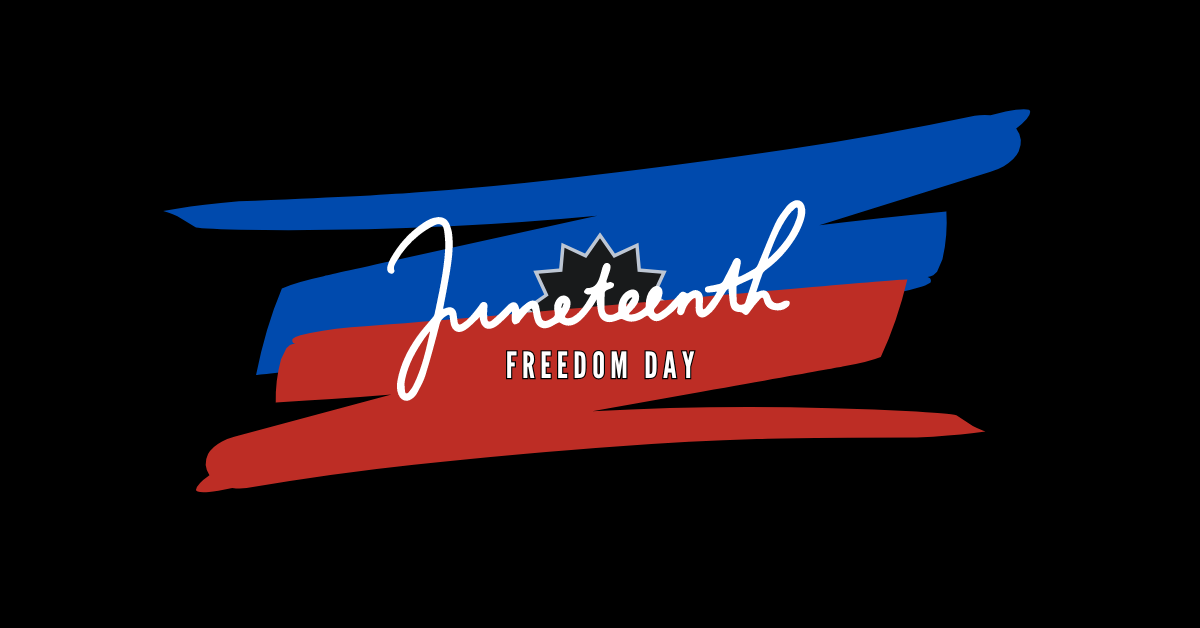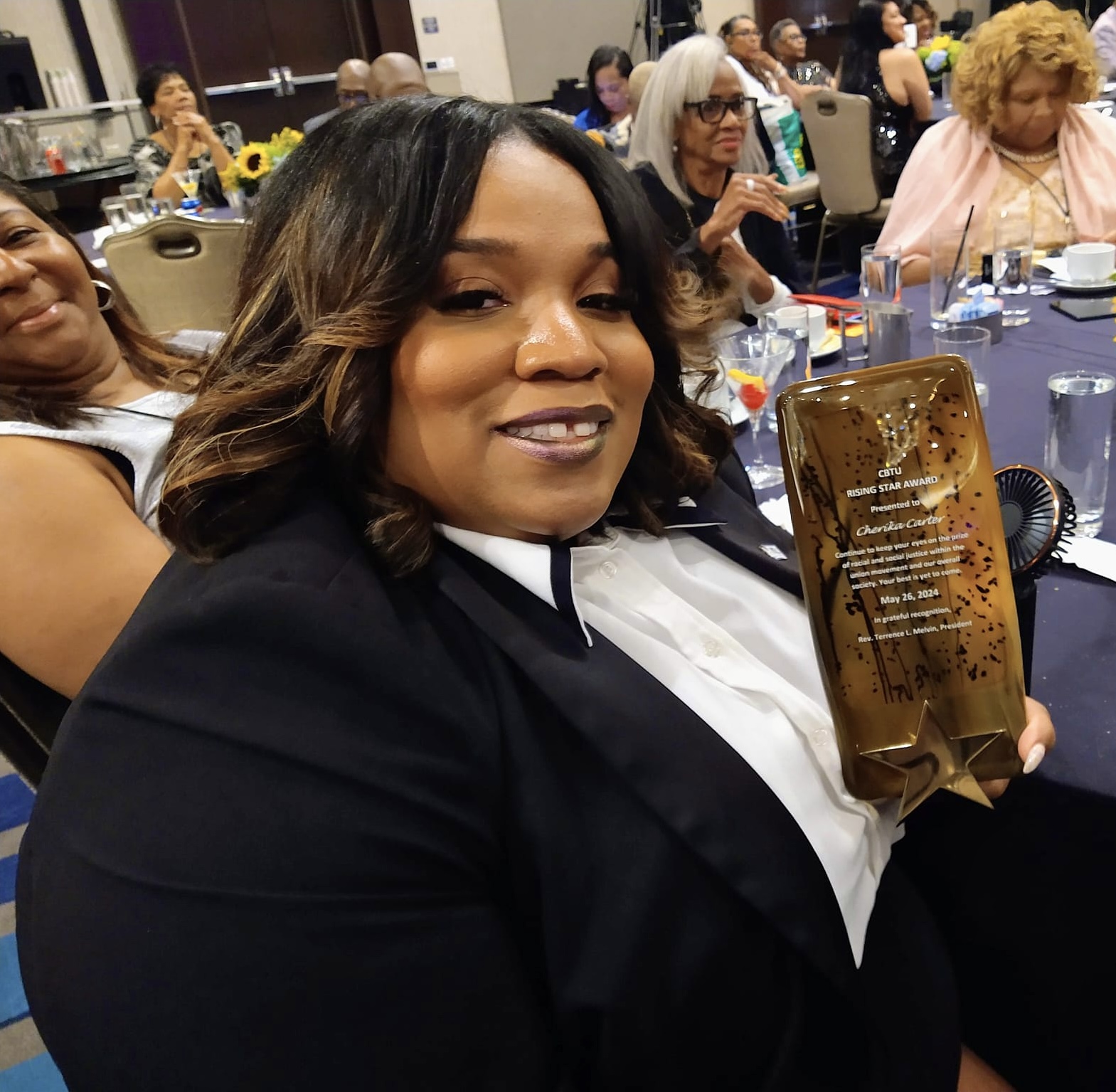OPINION
Lift every voice and sing
A Juneteenth reflection
By CHERIKA CARTER
(June 19, 2024)
Lift every voice and sing,
Till earth and heaven ring,
Ring with the harmonies of Liberty;
Let our rejoicing rise
High as the list’ning skies,
Let it resound loud as the rolling sea.
These powerful words open “Lift Every Voice and Sing,” a song that has become known as the Black National Anthem. Written by James Weldon Johnson and his brother John Rosamond Johnson, this anthem resonates deeply within the Black community, celebrating resilience, hope, and the enduring struggle for equality. Today, these words take on even greater significance and will be sung at many Juneteenth celebrations throughout the day.

Juneteenth commemorates the day in 1865 when news of the Emancipation Proclamation finally reached Galveston, Texas, freeing the last enslaved Black people in the United States. This was more than two years after President Abraham Lincoln signed the proclamation. Juneteenth is a day to celebrate the resilience of Black people in the United States, reflect on the long road to freedom, and recognize the ongoing fight for equality and justice.
This day is not only a historical milestone but also a reminder of the labor movement’s role in advocating for justice and equality. The labor movement has always been intertwined with the fight for Black liberation. From the days of chattel slavery to the present, Black workers have faced systemic exploitation and discrimination. Despite the abolition of slavery over 160 years ago, Black labor continues to be undervalued and underpaid. Black workers earn 30% to 35% less than their white counterparts, face higher unemployment rates due to discrimination, and are often overlooked for advancement opportunities, leading to trillions in lost wages.
The lines “Stony the road we trod, bitter the chastening rod…” from the Black National Anthem reflect the hardships endured by Black Americans, both historically and in contemporary society. Juneteenth is a time to acknowledge these struggles and to reaffirm our commitment to addressing the economic and legal disparities that persist. The labor movement plays a crucial role in this fight, striving to close wage gaps, ensure workplace dignity, and amplify the voices of Black workers.
As the Secretary Treasurer of the WSLC, my commitment to racial and economic justice is unwavering. The WSLC is deeply committed to racial justice, guided by our constitution which calls on us to:
“combat resolutely the forces that seek to undermine the democratic institutions of our nation and to enslave the human soul. We strive always to win full respect for the dignity of the human individual whom our unions serve. We recognize that the fates of all workers—Black, Brown, Indigenous, Asian, or White—are interconnected and that we either rise together or fail. We will win when all workers are recognized and empowered. By acknowledging that economic justice and racial justice are inextricably linked, we commit to sharing the responsibility for racial justice and equity. We actively work together to achieve the transformation we aspire to in our unions, workplaces, and communities. Our commitment to racial justice is reflected in our efforts to create inclusive workplaces and advocate for policies that uplift marginalized communities.”
Reflecting on my own family’s history with freedom, it is both one of hope and heartbreak. My fifth-great grandfather Payton Pauley was freed from slavery in 1847. By 1849 with the help of his brother Douglass, they purchased Payton’s 8 children and relocated the family to Ohio above the Mason-Dixon line. On June 6, 1850, all 8 children, between the ages of 4 to 17, were stolen and sold back into slavery in Kentucky and Virginia.
My grandfather Payton attempted to use every resource in the judicial system available to him to get his children back. But for a Black man in 1850, there weren’t many options. Through the help of some abolitionists and the political climate of the time, my family’s story caught the ear of the Governor of Ohio. 4 of his children were returned in 1851. My fourth-great grandfather Harrison Pauley remained enslaved in Virginia, along with 3 of his siblings, until the Emancipation Proclamation freed them in 1863. In my grandfather’s attempts to get his children back he had to navigate a court, judicial, and political system that wasn’t set-up with him or my family in mind. But even so, he persisted.
 I share my family’s freedom story, because it sheds light on why electoral politics are so important to me. Navigating the United States’ institutional racism and its deeply rooted racist systems remains a constant challenge for Black people. This struggle is precisely why I’m drawn to politics; my belief is that we must be actively involved to drive change from within. Engaging in the political process allows us to advocate for our communities and work towards dismantling these oppressive structures. Voting is crucial. It’s not just a right but a powerful tool to ensure our voices are heard and our interests represented. In our march forward into the light to create meaningful progress, we must be at the table, advocating for policies that advance justice and equality for all.
I share my family’s freedom story, because it sheds light on why electoral politics are so important to me. Navigating the United States’ institutional racism and its deeply rooted racist systems remains a constant challenge for Black people. This struggle is precisely why I’m drawn to politics; my belief is that we must be actively involved to drive change from within. Engaging in the political process allows us to advocate for our communities and work towards dismantling these oppressive structures. Voting is crucial. It’s not just a right but a powerful tool to ensure our voices are heard and our interests represented. In our march forward into the light to create meaningful progress, we must be at the table, advocating for policies that advance justice and equality for all.
The importance of voting cannot be overstated. This election cycle is critical because freedom and democracy are on the ballot, and our most powerful weapon is our vote.
I was recently elected as the Corresponding Secretary of the International Coalition of Black Trade Unionists (CBTU). CBTU, founded in 1972, is the fiercely independent voice of black workers within the trade union movement, challenging organized labor to be more relevant to the needs and aspirations of Black and poor workers.

Cherika poses with the Rising Star award at CBTU Convention in May. Photo courtesy of Kevin Allen.
Our theme this year is “never back, always forwards: hate cannot erase us”. This year’s theme serves as a reminder of how far we’ve come, and that we must uphold the gains we have made and acknowledge the struggles ahead. Voting is not just a right but a vital tool in the fight for justice and equality for all working people.

The words “Let us march on till victory is won” from the Black National Anthem encapsulate the spirit of Juneteenth and the labor movement. They remind us that the fight for freedom and equality is ongoing. They remind us that this fight takes all of us, united across race and place. And these words remind us that we must continue to march forward until we win racial and economic justice for all.
Juneteenth is a day to celebrate Black futures, reflect on the progress we’ve made, and recognize the work that still needs to be done. The labor movement, the WSLC, and CBTU has been and continues to be a powerful force for change, advocating for the rights and dignity of all workers. As we lift every voice and sing, let us also lift our hearts and hands in the fight for justice and equality. Happy Juneteenth!

Cherika Carter is the Secretary Treasurer of the Washington State Labor Council, AFL-CIO. With WSLC President April Sims, Carter is part of the first team of Black women to lead a AFL-CIO state federation.





